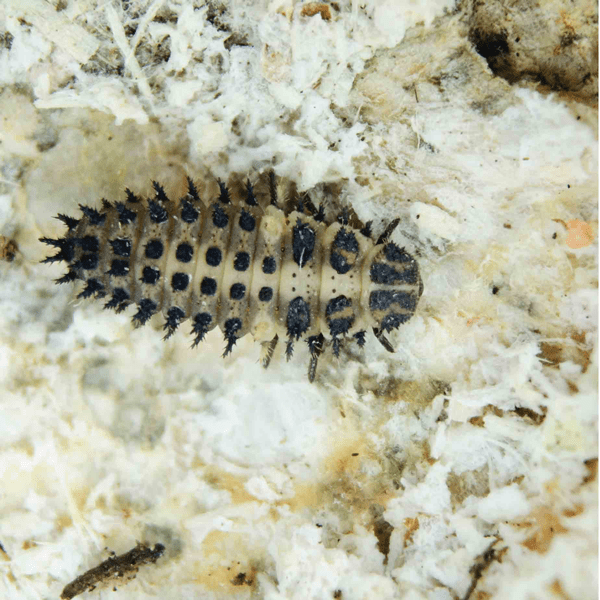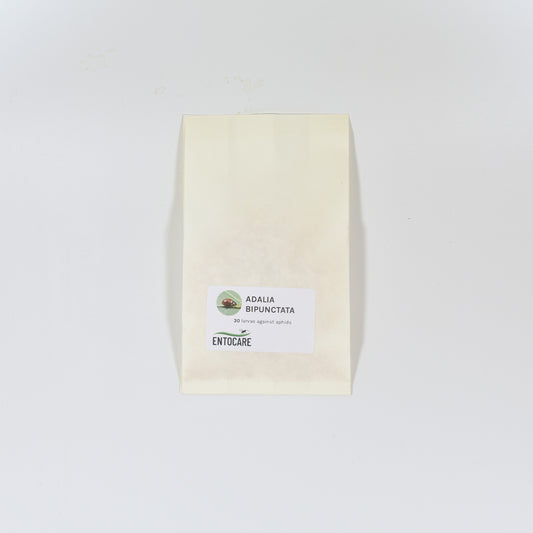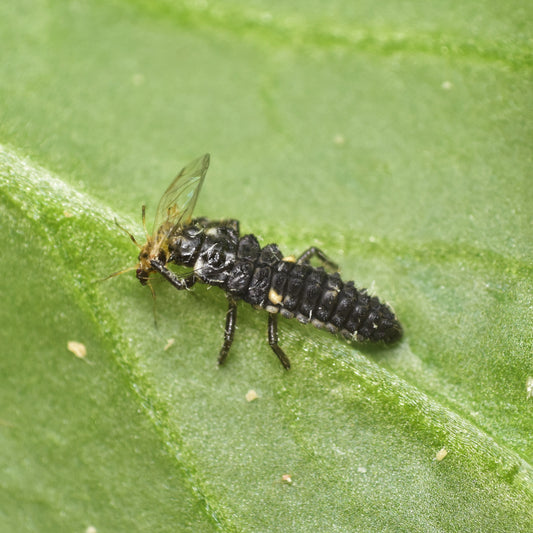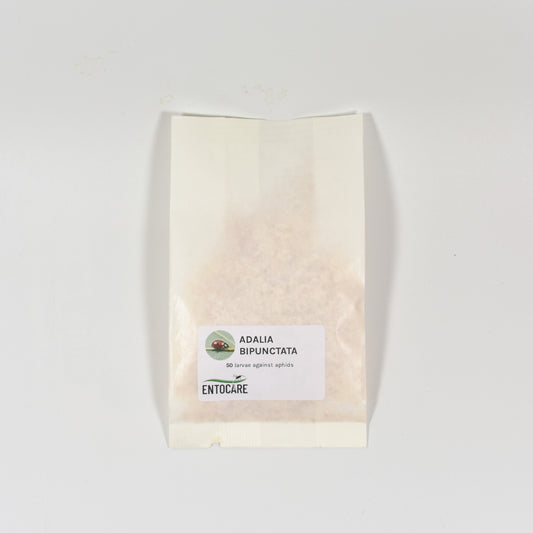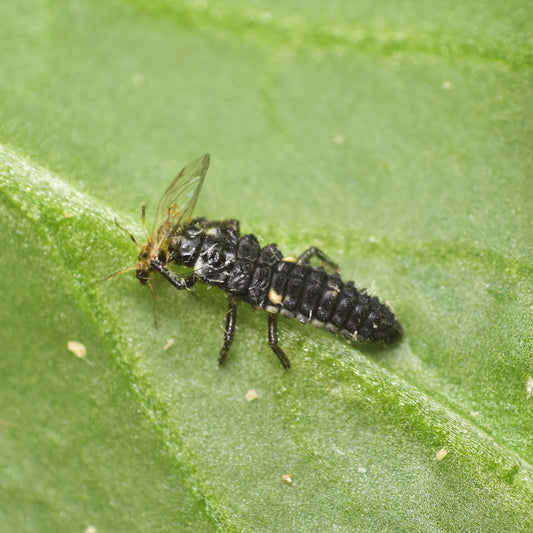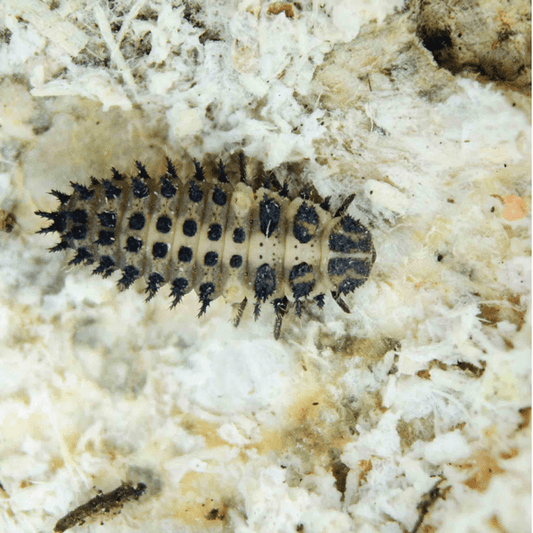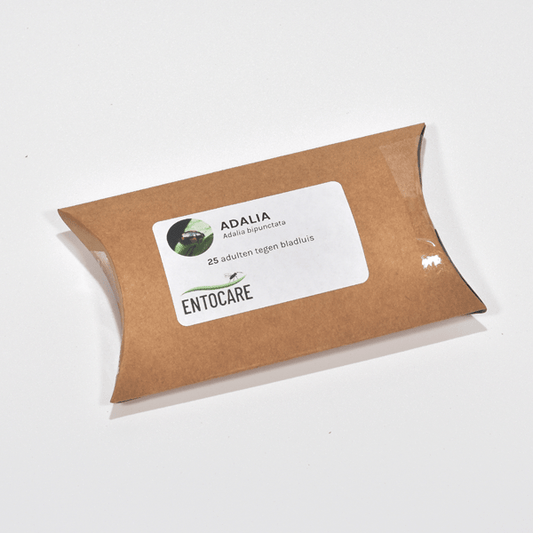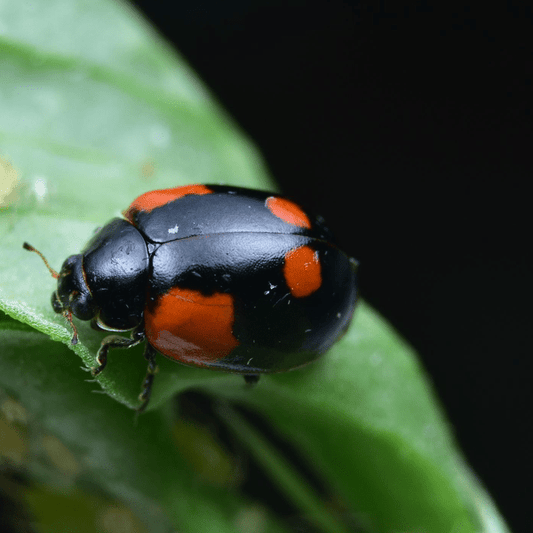Entocare
EXOCHOMUS QUADRIPUSTULATUS larvae - 50
EXOCHOMUS QUADRIPUSTULATUS larvae - 50
against soft scales
EXOCHOMUS QUADRIPUSTULATUS larvae are the voracious larvae of the indigenous pine ladybird. They can be used for the biological control of pulvinaria scale, which often occurs on hydrangea or trees. The larvae also feed on woolly apple aphid and woolly beech aphid. EXOCHOMUS QUADRIPUSTULATUS larvae are available in units of 50 larvae. They are packaged in a paper bag with wood fibre and food. The bag can be placed in a plant or tree.
Specificaties
Specificaties
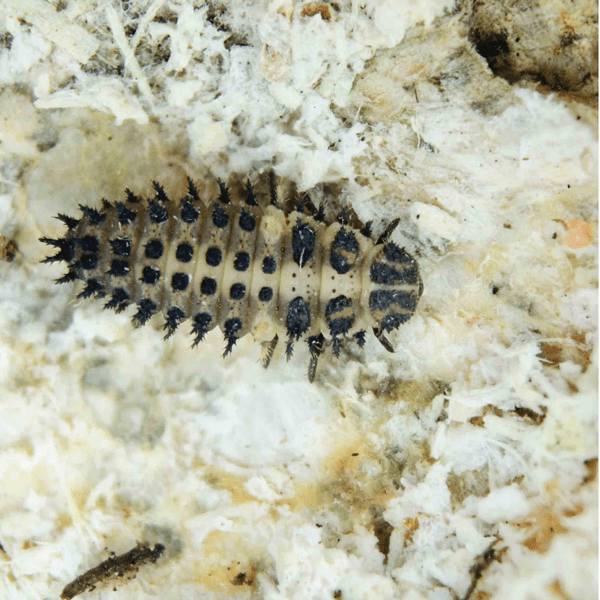
What is EXOCHOMUS QUADRIPUSTULATUS?
EXOCHOMUS QUADRIPUSTULATUS is a ladybird native to the Netherlands. The ladybird are black with four red-orange dots on the cover shields: two round dots and two kidney-shaped dots. Which explains the Dutch name 'viervlek-lieveheersbeestje' (four-spotted ladybird). The larvae are grey colored; sometimes covered with whitish remains of the Pulvinaria scales they have been eating. EXOCHOMUS QUADRIPUSTULATUS can be used for the biological control of hydrangea scale; cottony camellia scale; hore chestnut scale; woolly apple aphid and woolly beech aphid.
How does EXOCHOMUS QUADRIPUSTULATUS work?
The larvae mainly feed on the eggs in the white egg masses of the pulvinaria species. Older stages are also consumed. They feed on all stages of woolly apple aphid and woolly beech aphid. Empty; white remnants of the pest remain on the plant. After only one week the effect of the biocontrol agent is visible.
How to combine EXOCHOMUS QUADRIPUSTULATUS?
Against pulvinaria species; EXOCHOMUS QUADRIPUSTULATUS is great in combination with COCCOPHAGUS SCUTELLARIS. This is a small parasitoids that parasitizes the smallest stages of the soft scales. These small stages can be found on the plant from July onwards; and that is the perfect moment to release the parasitoids. These parasitoids are ineffective against woolly apple aphid and woolly beech aphid.
![]()
May, June and July
![]()
T = 15°C or higher
![]()
RH = 50 - 80%
![]()
public park, ornamental garden
Use one bag of larvae for three small shrubs or plants.For application in trees: one bag per tree.
- Open the bag and attach it to the plant or tree, close to the pest.
- The larvae will exit the bag in search for prey.
- It is also possible to distribute the contents of the bag near the pest manually.
- Shed skins may be left behind between the wood fiber: these are not dead larvae.
-
ADALIA larvae - 30
Regular price €10,60 EURRegular priceUnit price / per -
ADALIA larvae - 50
Regular price €20,00 EURRegular priceUnit price / per€20,00 EURSale price €20,00 EUR -
EXOCHOMUS QUADRIPUSTULATUS larvae - 50
Regular price €33,48 EURRegular priceUnit price / per€0,00 EURSale price €33,48 EUR -
ADALIA ladybirds - 25
Regular price €27,25 EURRegular priceUnit price / per€0,00 EURSale price €27,25 EUR

